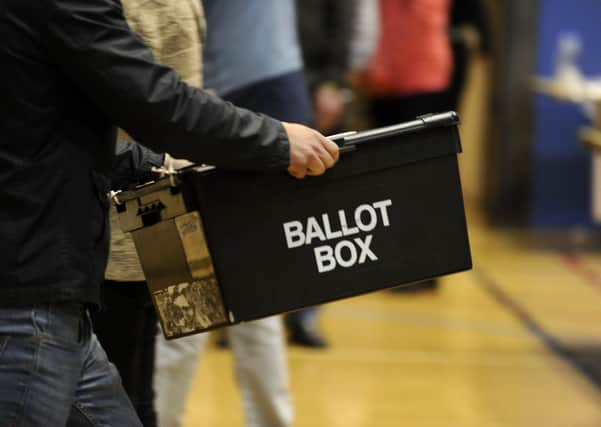Voices of the Future: What will the mayoral election mean for the main parties?


In May, West Yorkshire voters will elect the region’s first directly elected Mayor. The race will be a litmus test of Sir Keir Starmer’s leadership of the Labour Party; a poor result for its candidate, Tracy Brabin, would call into question his efforts to rebuild the party in its former heartlands.
Prime Minister Johnson will also pay close attention. A sizeable victory for Brabin over the Conservatives’ Matt Robinson would expose the fragility of its Northern support base.
Advertisement
Hide AdAdvertisement
Hide AdThe Conservatives, Labour and the Liberal Democrats are united in their advocacy of expensive redevelopment. That does not mean their plans are identical, however. The parties may all agree on the need for a ‘green recovery’ but each has widely different policies to achieve this.
The Conservatives have become increasingly fond of enormous spending. Yet, such radicalism has emerged out of necessity, rather than conviction. The introduction of the furlough scheme was inspired more by Sunak’s pragmatic desire to minimise the worst impacts of the pandemic than a wholehearted embrace of the “nanny state”.
One poll found that 41 per cent of Britons plan to vote Conservative, compared to 38 per cent for Labour. The Tories’ continued lead in polls will disappoint the Labour leadership, which has moved away from the hard left to appeal to more moderate voters.
Labour’s candidate, Tracy Brabin, was elected almost uncontested as the Batley and Spen MP following the tragic death of Jo Cox. The turmoil of recent years has convinced Brabin that Labour must be radical if it is to regain voters’ trust.
Advertisement
Hide AdAdvertisement
Hide AdBrabin’s advocacy of improved bus routes and a Job Creation Taskforce will appeal to young and low-income voters, whose hopes of moving up the career ladder were severely diminished by the covid-induced wave of business closures. It is still unclear, however, whether this bold rhetoric will appeal enough to disillusioned voters.
The Liberal Democrats have selected long-standing councilor Stewart Golton as their candidate. Its grass-roots work, the party hopes, has improved its appeal to voters after three disappointing general elections. Golton has pledged to prioritise investment in transportation, particularly in improving local bus routes. Of the three candidates, Golton appears the most cautious about the region’s finances, voicing his skepticism over the cost of HS2.
The result of May’s mayoral election will have notable ramifications for all three parties. A comfortable victory for Labour would enable the party to take on the Tories in the North.
This will also test Jonson’s “levelling-up” agenda. It remains possible the promises of improved infrastructure and better policing will convince traditional Labour voters to endorse the party of Thatcher. In May we will find out whether this gamble with vast spending has paid off.
l Also standing in the mayoral election are: Waj Ali (Reform UK); Bob Buxton (Yorkshire Party); Andrew Cooper (Green Party); Thérése Hirst (English Democrats).
Comment Guidelines
National World encourages reader discussion on our stories. User feedback, insights and back-and-forth exchanges add a rich layer of context to reporting. Please review our Community Guidelines before commenting.